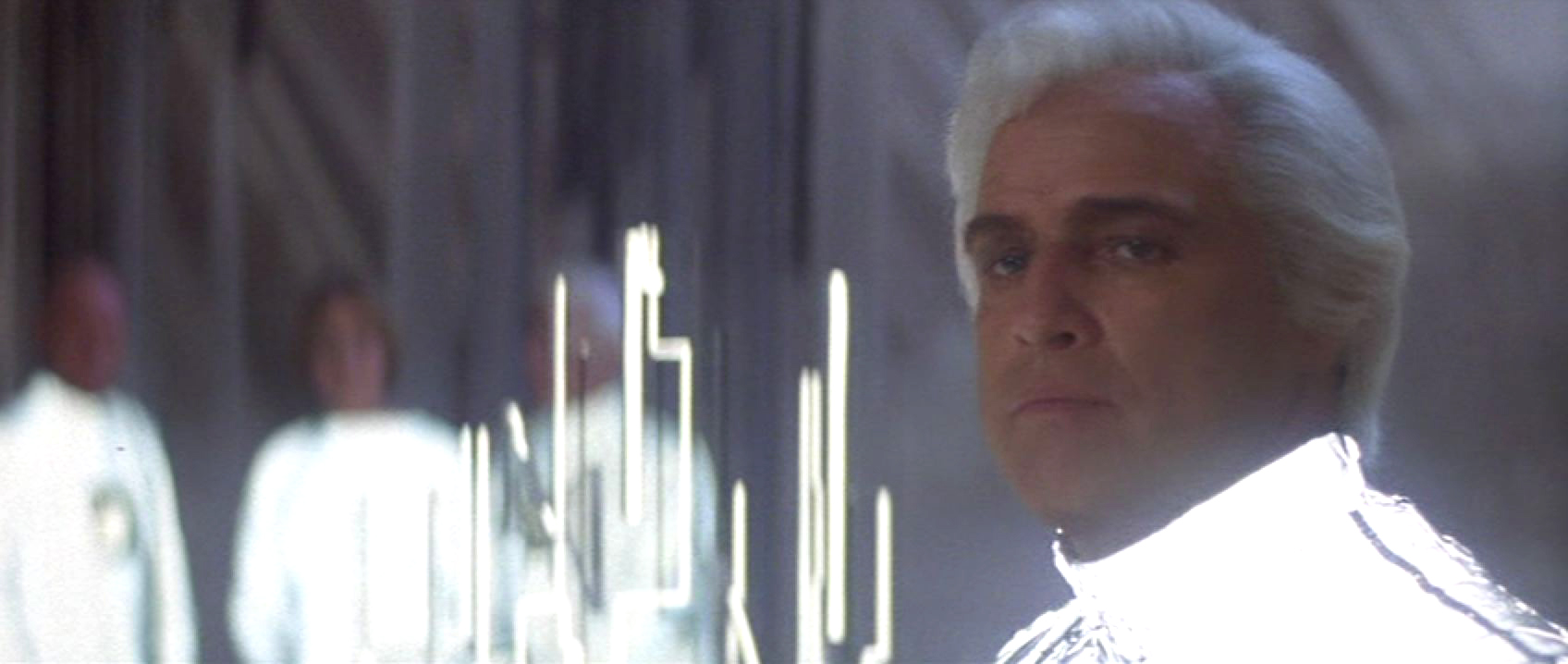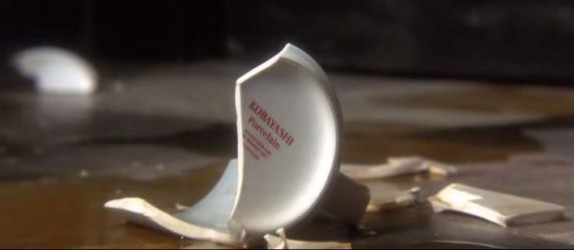It has occurred to me that within the confines of the Superhero sub-genre that so dominates modern Hollywood output that there is a single relationship that underpins the Superheroes’ actions and their relationships to order and society. This relationship is between the Superhero and his father. Several recent releases reiterate this relationship, but it has its most clear articulation in Superman (Richard Donner, 1978) the film that set a structural template for the Superhero film. Thinking of fathers inevitably leads to Freud, Jung, et al and I’m going to use this post to suggest some ideas about the relationship between the Superhero and his father. The psychoanalytic ideas I shall refer to are those of the Symbolic Order and the Father Complex to highlight an essential structural element of this style of film. By investigating this we will see how the structure of the Super-Hero film hinges on the resolution of the subject/father relationship.
The relationship between the Superhero and his Father is a dominant theme in all the major Super-Hero releases from the past 30 years. For the purposes of this paper I will refer to Superman, X-Men (Bryan Singer, 2000), Spiderman (Sam Raimi, 2002), Daredevil (Mark Stephen Johnson, 2003), Batman Begins (Christopher Nolan, 2005), The Green Hornet (Michel Gondry, 2011) and Green Lantern (Martin Campbell, 2011). Each of these films articulates a father/son relationship that must be resolved for the hero to achieve their aims – a clear instance of the father complex (where the subject is formed/dependent on the father). In several of these films the father figure is not a relation but another who assumes the patriarchal relation, such as Uncle Ben in Spiderman or Professor Xavier in X-Men, however it is their role as the representative of symbolic order, as a force which imposes law and regulates desire that is important. Often it is the removal of the father by a violent act that operates as the catalyst for the plot in these films (i.e. there is no Batman without the death of Bruce Wayne’s father Thomas).
The Traumatic Father
An initial trauma concerning the father can be seen across many of these films. The attempts to cope with the traumas, and the subsequent resolutions, are what drive the films forward. In Superman this is as dual trauma as two fathers are present; both die prematurely and the conflict of the central character’s choice between the two, forms much of the dramatic axis. Superman/Clark Kent/Kal-El has been passed from one father to another and so moves between two opposing Names of the Father/Symbolic Orders. The two father figures in Superman are opposed; there is the god-like natural father Jor-El who initially exists in relation to Kal-El as the perfect Real Father- his relationship existing in Kal-El’s pre-linguistic state. However through the use of audio recordings and teaching he becomes the representative of one type of Symbolic Father, imposing language and order onto the young child as he travels to earth. However Jor-El is subsequently displaced by the adoptive human father, Jonathan Kent. Kent is presented as distinctly human, preaching home-spun wisdom rather than the universal forms that Jor-El communicates. At this point Jor-El moves into being representative of the Imaginary Father, a fantasy projection of the imaginary ideal on which Clarke models his Superman persona, represented by the command of Jor-El that;
The father becomes the son, and the son becomes the father.
In Superman’s decision to reject the rules of Jor-El and to change time to save Lois Lane from death we see a rejection of one, non-interventionist symbolic order (and the imaginary father), to another that approves of compassion – the acceptance of an alternative symbolic order. The human has triumphed over the divine, Jonathan has defeated Jor-El (this is especially so in the special edition which contains a scene explicitly dramatizing this conflict).
This acceptance of the Name-of-the-Father is a key element of these films. The reconciliation of the Superhero to their fathers signals an acceptance of the symbolic father and the rules and morality associated with them. In Batman Begins Bruce Wayne initially rejects the rules of the Symbolic Father in his quest for vengeance. His father, a doctor and philanthropist, was defined by his compassion. At this point in the narrative Bruce Wayne attempts to shoot his parents’ murderer, Joe Chill, but is thwarted by another assassin. This failure prompts a movement to China where Wayne takes up with a surrogate father Henri Ducard who teaches Wayne the physical skills required to complete his quest for vengeance. However it is Wayne’s rejection of Ducard’s invocation to kill and eventual acceptance of his Father’s principles that leads to him ascending into heroic status and becoming Batman. Similar to Superman, who dramatizes his conflict in his dual persona, a tension arises between the Batman and Wayne characters. Ironically it is the Batman figure who takes the place of Wayne’s father as a caretaker of Gotham, whereas Bruce Wayne becomes a mask.
Similarly problematic schisms with father figures occur in both The Green Hornet and Green Lantern. In The Green Hornet Britt Reed initially rejects the rules of his father, behaving in irresponsible and childish ways. His ascendancy to hero status comes at the realisation of his father’s true worth at which point he endeavours to uphold the journalistic ideas his father held dear. In Green Lantern Hal Jordan is crippled by fear, an anxiety picked up by watching his own father die in a plane crash. It is only by realising that the image of his father that he holds is an imaginary ideal that he can fully take his place in the Symbolic Order. By rejecting the Imaginary Father of his own ego-construct and embracing the lessons imparted by the Symbolic father, Jordan is able to conquer his own fear and save the planet from the fear entity Parallax.
The Surrogate Father
Spiderman & X-Men both use surrogate father figure to depict this resistance of entry into the symbolic order. For Peter Parker Uncle Ben occupies the place of the father. It is Parker’s rejection of his uncle’s teaching that leads to the uncle’s death. Only by embracing his Uncle’s axiom that;
With great power comes great responsibility,
can Parker take his place in the social order. In X-Men Charles Xavier presents a different father figure in that he remains constant throughout the film, with no traumatic separation. However it is Wolverine’s/Logan’s rejection of the Symbolic Order that brings him two Xavier’s School. By taking his place there, and accepting Xavier as the Symbolic Father, Wolverine is able to learn about himself. In X-Men 2 a conflict between an opposing father, General Stryker, is created in which Wolverine/Logan is given a choice. By choosing Xavier, and rejecting his creation at the hands of Stryker, a relationship similar to the Jor-El/Jonathan Kent dynamic is revealed.
The Failing Father
In Daredevil a dissonance about the relationship between the Imaginary Father and the actual father underpins the motivation of the central character. Matt Murdock believes his father to be a hard-working ex-boxer. When he discovers that he is actually a hired thug for a local mobster he runs away – a trauma that leads directly to his loss of sight. Full of grief Murdock senior cleans up his act, but this just leads to the traumatic event (his death at the hands of The Kingpin) that creates Daredevil. Murdock achieves resolution by defeating The Kingpin and resolving himself to be the type of man his father should have been.
Final Thoughts
I have written this to give a broad overview of the father issues present in the genre with a limited number of examples. However father complexes are clearly visible in Thor (Kenneth Brannagh, 2011) between Thor and Odin, and Loki and Odin; Superman Returns (Bryan Singer, 2006) between Superman and Jason; Batman (Tim Burton, 1989) between Wayne & his father but also, in a twisted echo, between Batman and the Joker; Batman Returns (Tim Burton, 1992) between The Penguin and his father; and Kick Ass (Mathew Vaughn, 2010) this time with a daughter – Hit-Girl and Big-Daddy). One wonders whether a female oriented Super-Hero film, Wonder Woman maybe, would replicate this dramatic axis, or replace it with a mother anxiety instead?







